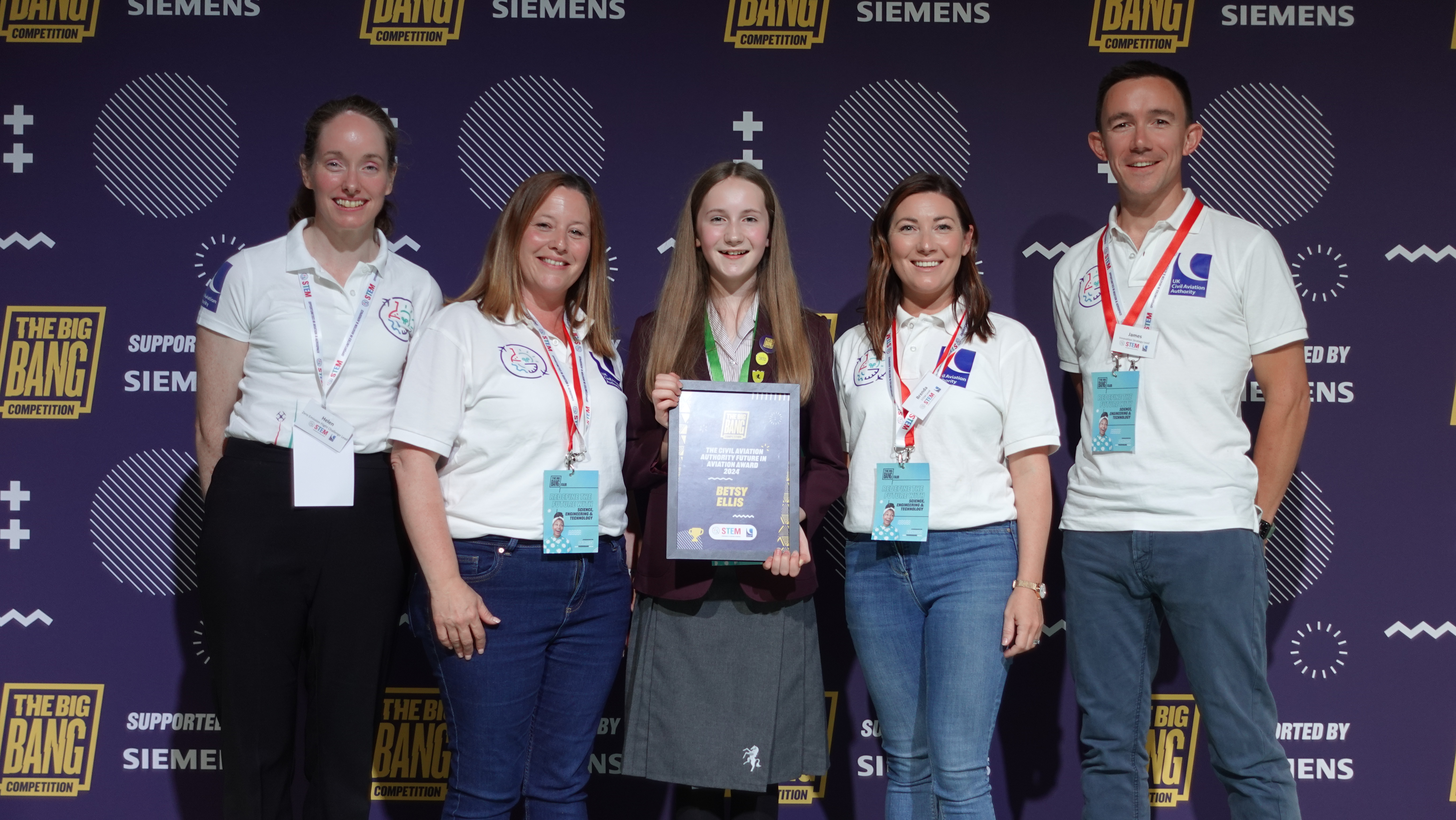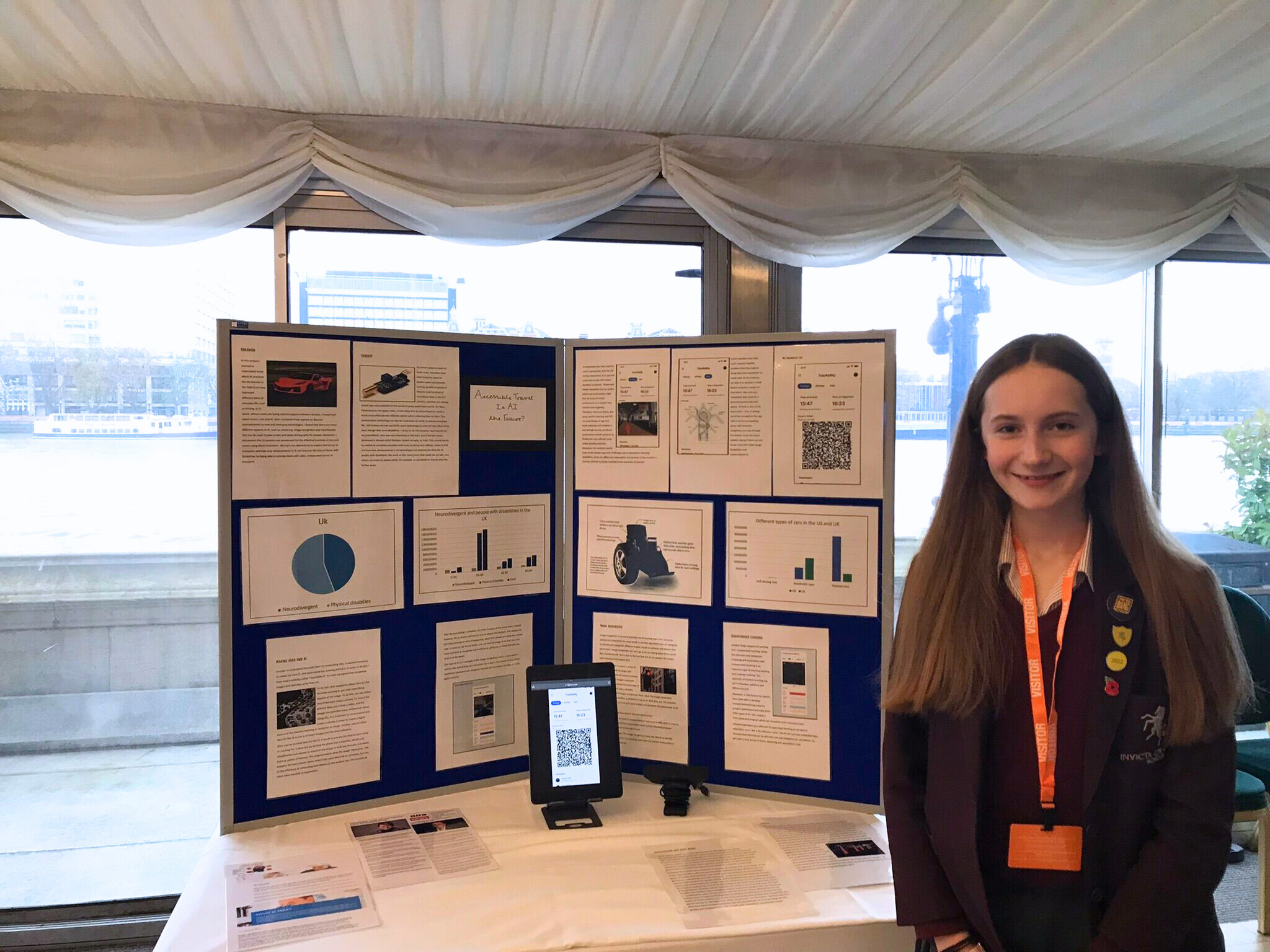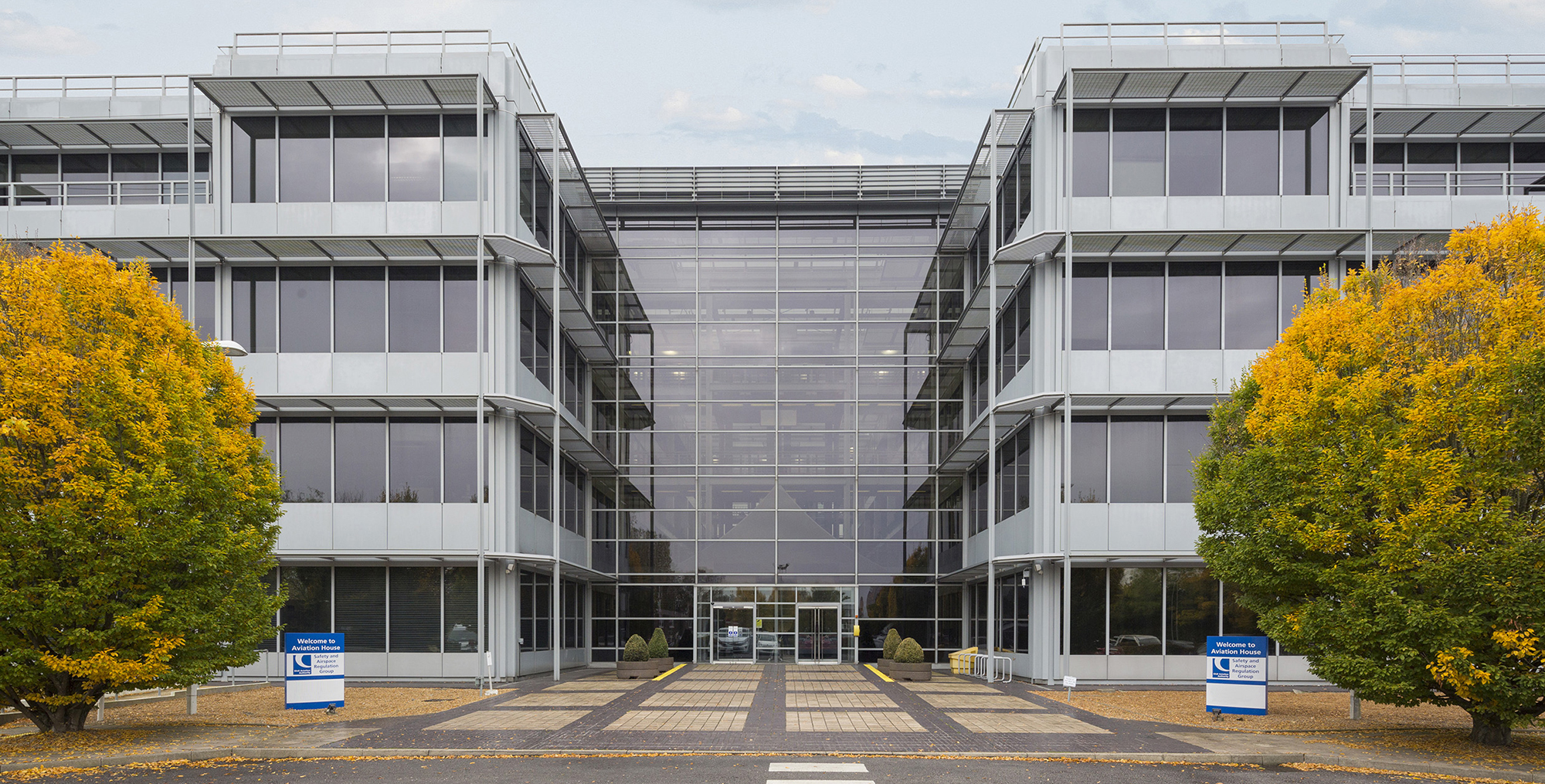Last year the Civil Aviation Authority sponsored its first STEM award, the ‘Civil Aviation Authority Future in Aviation Award’. Presented at the last Big Bang Fair, at the NEC in Birmingham, the award aims to highlight the innovative ideas and talent that young people across the country offer.
Our first award winner Betsy Ellis, won with her impressive project ‘Accessible travel: is AI the future?’ Here, Betsy describes the idea behind her project, and where she hopes to take it in the future.
How did you feel when it was announced that you were the winner of the Civil Aviation Authority Future in Aviation Award?
I was so elated because I had no idea that my school science fair project would lead to so many opportunities and possibilities. It also sparked my interest because I was excited to learn more about the Civil Aviation Authority.

What made you come up with your ‘Accessible travel: Is AI the future’ idea?
My grandad passed away just before I began this science project from an illness called Multiple System Atrophy (MSA) which takes away your mobility. This led me to wonder if there was anything that would have helped him keep his independence for longer. This led me to the idea of an app which would be usable from a wheelchair. He was an engineer himself, and I think he would have been very interested in the idea, so this has kind of been inspired by him and his legacy.
What ways does your project contribute to help the aviation industry?
I think that an idea like this could be used in airports, where it is always busy and people who have disabilities would struggle to navigate a stressful area. People with hidden disabilities such as autism, ADHD and social anxiety might find the busy and hectic environment of an airport very stressful and triggering. Moreover, people with physical disabilities may find it difficult to navigate themselves and their belongings. To add to this, an app which allows easy navigation and organisation of an airport could be used to help certain people cope with challenges such as dementia or learning disabilities, which can affect your organisation and memory. It also would be a low-cost solution to always needing human assistance at airports.
How did you feel when you showcased your award-winning project during Big Bang at Parliament?
The whole experience was so surreal! It all happened so quickly on the actual day and I was so surprised that Members of Parliament were interested in my project. I felt excited by all the opportunities there. I personally enjoyed seeing the other projects showcasing at Parliament. I loved learning about all the different approaches that the others took into engineering because it allowed me to see, first hand, the vast range of different aspects of engineering and how this can improve people’s lives.

What do you hope to do in the future with ‘Accessible travel: is AI the future?’
Obviously, the app is currently just a design, using a website called Figma, and the next step would be to try and use software to make the app functional. This would mean integrating the AI and possibly GPS into the app. Then, after that, there would be a period of testing in different areas, for example, in airports and train stations.
Is there anything else you would like to add about this experience?
I think that everyone has the responsibility to spread awareness and promote women learning and working in STEM fields, like the Civil Aviation Authority. We need to drive forward the idea that girls don’t have to do the more stereotypical “girls' jobs” and that there is a huge variety of careers out there, especially in STEM. Before this experience, I’d only heard of a few jobs that I could go into in the engineering industry such as an electrical engineer. However, I now know more about those utilising technology and, more recently, AI, such as in biomedical engineering. I think that everyone should get opportunities like these, to explore potential careers and explore what they are passionate about.


Leave a comment
Comments have closed for this blog post.